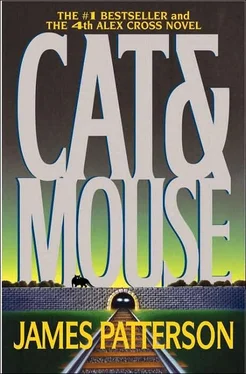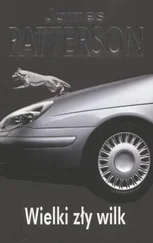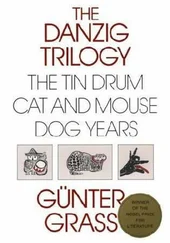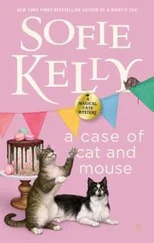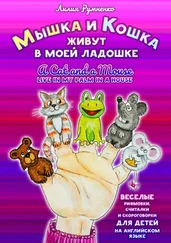For a second or two. I was blinded. Then I felt as if I were burning up. My trousers and shoes were engulfed in flames. I covered my face, mouth, and eyes with my hands. “Jesus, God,” Groza screamed.
I could hear a sizzle, like bacon on a grill. I prayed it wasn’t me that was cooking. Then I was choking and gurgling and so was Groza. Flames burst and danced across my shirt, and through it all I could hear Soneji. He was laughing at us.
“Welcome to hell, Cross,” he said. “Burn, baby, burn.”
GROZA AND I stripped the bed of blankets and sheets and beat out our burning trousers. We were lucky, at least I hoped we were. We smothered the flames. The ones on our legs and shoes.
“He wanted to burn Thomas alive,” I told Groza. “He’s got another firebomb. I saw another green bottle, at least one.”
We hobbled as best we could down the hospital corridor, chasing after Soneji. Two other detectives were already down outside, wounded. Soneji was a phantom.
We followed him down several twisting flights of back stairs. The sound of the footrace echoed loudly on the stairway. My eyes were watering, but I could see okay.
Groza alerted and clued in other detectives on his two-way. “Suspect has a firebomb! Soneji has a bomb. Use extreme care.”
“What the hell does he want?” the detective yelled at me as we kept moving. “What the hell’s he going to do now?”
“I think he wants to die,” I gasped. “And he wants to be famous. Go out with a bang. That’s his way. Maybe right here at Bellevue.”
Attention was what Gary Soneji had always craved. From his boyhood years, he’d been obsessed with stories of “crimes of the century.” I was sure that Soneji wanted to die now, but he had to do it with a huge noise. He wanted to control his own death.
I was wheezing and out of breath when we finally got to the lobby floor. Smoke had seared my throat, but otherwise I was doing okay. My brain was fuzzy and unclear about what to do next.
I saw a blur of hectic movement ahead, maybe thirty yards across the front lobby.
I pushed through the nervous crowd trying to exit the building. Word had spread about the fire upstairs. The flow of people in and out of Bellevue was always as steady as at a subway turnstile, and that was before a bomb went off inside.
I made it onto the stoop in front of the hospital. It was raining hard, gray and awful outside. I looked everywhere for Soneji.
A cluster of hospital staff and visitors were under the front awning, smoking cigarettes. They seemed unaware of the emergency situation, or maybe these workers were just used to them. The brick path leading away from the building was crowded with more pedestrians coming and going in the downpour. The umbrellas were blocking my vision.
Where the hell had Gary Soneji gone? Where could he have disappeared to? I had the sinking feeling that I’d lost him again. I couldn’t stand any more of this.
Out on First Avenue, food vendors under colorful umbrellas stained with dirt were peddling gyros, hot dogs, and New York-style pretzels.
No Soneji anywhere.
I kept searching, frantically looking up and down the busy, noisy street. I couldn’t let him get away. I would never get another chance as good as this. There was an opening in the crowd. I could see for maybe half a block.
There he was!
Soneji was moving with a small clique of pedestrians headed north on the sidewalk. I started to go after him. Groza was still with me. We both had our weapons out. We couldn’t risk a shot in the crowds, though. Lots of mothers and children and elderly people, patients coming and going from the hospital.
Soneji peered to the left, the right, and then behind. He saw us coming. I was sure he’d seen me.
He was improvising his escape, a way out of the extreme and dangerous mess. The sequence of recent events showed deterioration in his thinking. He was losing his sharpness and clarity. That’s why he’s ready to die now. He’s tired of dying slowly. He’s losing his mind. He can’t bear it.
A Con Ed crew had blocked off half the intersection. Hard hats bobbed in the rain. Traffic was trying to maneuver around the roadwork, nonstop honkers everywhere.
I saw Soneji make a sudden break from the crowd. What the hell? He was running toward First Avenue, racing down the slippery street. He was weaving, running in a full sprint.
I watched as Gary Soneji spun quickly to his right. Do us all a favor, Go down! He ran along the side of a white and blue city bus that had stopped for passengers.
He was still slipping, sliding. He almost fell. Then he was inside the goddamn bus.
The bus was standing-room only. I could see Soneji frantically waving his arms, screaming orders at the other passengers. Jesus, God, he’s got a bomb on that city bus.
DETECTIVE GROZA staggered up beside me. His face was smudged with soot and his flowing black hair was singed. He signaled wildly for a car, waving both arms. A police sedan pulled up beside us and we jumped inside.
“You all right?” I asked him.
“I guess so. I’m here. Let’s go get him.”
We followed the bus up First Avenue, weaving in and out of traffic, siren full blast. We almost hit a cab, missed by inches, if that.
“You sure he’s got another bomb?”
I nodded. “At least one. Remember the Mad Bomber in New York? Soneji probably does. The Mad Bomber was famous.”
Everything was crazy and surreal. The rain was coming down harder, making loud bangs on the sedan’s roof.
“He has hostages,” Groza spoke into the two-way on the dash. “He’s on a city bus heading up First Avenue. He appears to have a bomb. The bus in an M-15. All cars stay on the bus. Do not intercept at this point. He has a goddamn bomb on the M-15 bus.”
I counted a half a dozen blue-and-whites already in pursuit. The city bus was stopping for red lights, but it was no longer picking up passengers. People standing in the rain, bypassed at stops, waved their arms angrily at the M-15. None of them understood how lucky they were that the bus doors didn’t open for them.
“Try to get close,” I told the driver. “I want to talk to him. Want to see if he’ll talk anyway. It’s worth a try.”
The police sedan accelerated, then weaved on the wet streets. We were getting closer. We were inching alongside the bright blue bus. A poster advertised the musical Phantom of the Opera in bold type. A real live phantom was on board the bus. Gary Soneji was back in the spotlight that he loved. He was playing New York now.
I had the side window of the car rolled down. Rain and wind attacked my face, but I could see Soneji inside the bus. Jesus, he was still improvising-he had somebody’s child, a bundle of pink and blue, cradled in his arm. He was screaming orders, his free arm swinging in angry circles.
I leaned as far as I could outside the car. “ Gary!” I yelled. “What do you want?” I called out again, fighting the traffic noise, the loud roar of the bus. “ Gary! It’s Alex Cross!”
Passengers inside the bus were looking out at me. They were terrified, beyond terror, actually.
At Forty-second Street and First, the bus made a sudden, sweeping left turn!
I looked at Groza. “This the regular route?”
“No way,” he said. “He’s making his own route up as he goes.”
“What’s on Forty-second Street? What’s up ahead? Where the hell could he be going?”
Groza threw up his hands in desperation. “ Times Square is across town, home of the skells, the city’s worst derelicts and losers. Theater district’s there, too. Port Authority Bus Terminal. We’re coming up on Grand Central Station.”
Читать дальше
